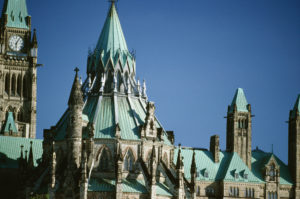Tentative Celebration After Key Amendments Passed On Non-Qualified Donees
This excerpt from The Future of Good discusses Senator Omidvar’s Bill S-216 and two of the House of Commons finance committee’s amendments to the Budget Implementation Act.

On Monday, the House of Commons finance committee approved two amendments to the Budget Implementation Act, which sector advocates say alleviate most of their major concerns about how the government is proposing to legislate funding relationships between charities and non-qualified donees.
“Really substantial progress has been made,” said Bruce MacDonald, CEO of Imagine Canada, of the amendments. “We’ll wait and see what the CRA guidance looks like, but it’s pointed in the right direction.”
The amendments come on the heels of three weeks of sustained advocacy on this issue, which brought a dozen charity sector representatives to Ottawa to make the case to MPs for legislative changes.
The two approved amendments both relate to one section of the previous legislation, which advocates say was overly prescriptive and not aligned with the spirit of Bill S-216 — a senate bill on the same topic that had been in the works for over two years.
The pair of previous clauses, now rejected by the finance committee, would have prescribed in law how charities had to ensure non-profits or grassroots groups used their donations accountably.
It would have required, for instance, that non-qualified donees — organizations without charitable status, such as activist groups, non-profits or organizations in the global south — be willing to share their accounting, related to the use of the donation, with their charitable funding partner on-demand. It would have also required non-qualified donees to provide their charitable funding partners with an annual written report detailing progress on the grant’s intended objectives.
The pair of amendments eliminates these specific requirements, which advocates say required a cookie-cutter approach to relationships that require flexibility.
Instead, the new language requires simply that a charity who funds a non-qualified donee must maintain “documentation sufficient to demonstrate” the purpose of the donation and that the money is spent by the donee on nothing but charitable activities that are aligned with the funder’s own charitable purposes.
NDP MP Daniel Blaikie, who proposed one of the two approved amendments, said on Monday that the new language “strikes a good balance for the need for accountability on the one hand and the need for some more flexibility than the charitable sector has enjoyed in the past.”
Senator Ratna Omidvar, who has led the push on Bill S-216, said she is “incredibly gratified” to see the changes.
She said she also anticipates that the CRA will issue further “guidance” to charities about the government’s expectations for accountable dealings with non-qualified donees. Guidance documents are written by the CRA and explain the requirements of the Income Tax Act in plain language. Omidvar said it’s preferable that the specifics of funding accountability be left to the guidance documents rather than be written into law, as it will allow for greater flexibility.
“If this bill had been passed as drafted, the law states that if you do not follow it, your charitable status can be revoked. That is mega, mega, mega serious for the sector,” she said. “Whereas if it’s in the guidance, it’s open to nuance, interpretation and context.”
Read the full article in The Future of Good